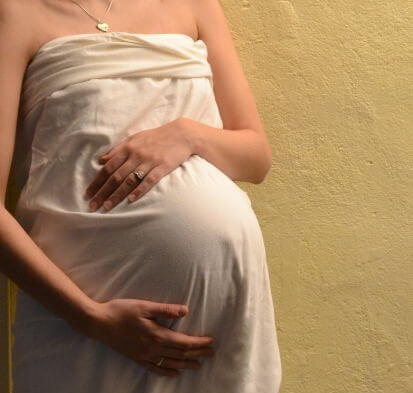Two weeks after the FDA took on the discussion of the ethics behind 3-parent IVF babies, the controversy doesn’t seem to want to go away.
Critics from around the world continue to decry the potential for ‘better babies’ as a gateway to negative eugenics, while supporters continue to argue that the procedure could help sick mothers produce happy and healthy babies.
Alex Berezow, a contributor for Forbes who covers science, science policy and ‘a dash of European affairs,’ was likened to a Nazi for his support for biotechnology.
What on Earth have I done to deserve such scorn? … my support of “three-parent embryo” technology is evil incarnate. If you’re unfamiliar with the technology, here is a brief primer. In short, the technology allows for a woman who has a mitochondrial disease to use another healthy woman’s egg, followed by standard in vitro fertilization, to conceive a healthy baby. The resulting zygote would have a tiny fraction of DNA from the healthy egg donor, hence the term “three-parent embryo.”
Father Paul Schenck, from Catholic Online has a post-graduate and professional certification in bioethics. He states in his article that he pursued this education to “take head-on the growing ethical and moral questions being raised in biotechnologies.” The very origin of eugenics is simply defined as “better babies,” he writes, and it is this definition wherein the danger lies.
Perhaps the most notorious eugenicist of [the 1920s eugenics era was] Margaret Sanger, the founder of Planned Parenthood, who called the “undesirable and unfit” human weeds, and urged their being weeded out of the human race.
[Almost] a hundred years later, the US FDA is considering approving an IVF procedure designed to do just this: weed out babies with genetic diseases by eviscerating their DNA and replacing it with a stranger’s. This way, the child inherits the traits of three parents. But more insidious is the motivation: to perfect human children. This begs the question: what is an “imperfect” child? Who decides?
While Schenck decries the decision making behind this kind of procedure, Berezow responds that it would be cruel to prevent any prospective mother with the choice of having a happy, bouncing and healthy child.
The debate could soon get even more heated. Leading bioethicists in Britain have gone past the 3-parent debate, raising the possibility of what they call “multiplex parenting.” This would be a process of creating babies from more than just three genetic parents.
John Harris, of the University of Manchester, and two colleagues, César Palacios-González and Giuseppe Testa contend in the Journal of Medical Ethics (free online) that this is one of many exciting consequences of using stem cells to create synthetic eggs and sperm. (Or as they prefer to call them, in vitro generated gametes (IVG).)
Harris and his colleagues argue that this is indeed ethical “so long as experiments on mice show that it is safe.” They also postulate that it will not be long before scientists will be able to cross the threshold into human trials. In their paper, they lay out ethical justification for this procedure and potential uses.
After all, they write, this is already a much higher ethical bar than the one used for the first IVF babies. “If impractically high precautionary thresholds were decisive we would not have vaccines, nor IVF, nor any other advance. Nothing is entirely safe.” Besides, any children brought into the world are better off than if they never existed.
Michael Cook, from Bioedge, writes that the child borne from multiplex parenting has little to complain about because it exists – better than not. He also argues today, parenting already involves multiple individuals from different generations aside from the parents.
The use of IVGs merely gives this reality a genetic component. “Prospective parents will be able to choose among a hitherto unimaginable variety of potential children,” they write.
Wesley J. Smith, of the National Review, takes exception to what he calls Harris’ “radicalism.” He argues that if undeterred, activists will push for the right to create embryos only to destroy them for their embryonic stem cells. These cells, he states, would then be used to generate a zygote that would be genetically related to multiple individuals.
If they succeed, it will lead to a dramatic increase in the social chaos that we are already experiencing.
Additional Resources:
- Three parent baby debate: FDA ponders mitochondrial manipulation and, perhaps, germline modification too, Genetic Literacy Project
- Catholic Pro-Life Magazine Compares Me To A Nazi For Supporting Biotechnology, Forbes
- Fr. Paul Schenck: The New Eugenics, ‘Better Babies’ and the Dangers of Biotechnology, Catholic Online
- Stop fretting about 3-parent embryos and get ready for “multiplex parenting”, BioEdge
- Pushing Polyamorous Genetic-Related Babies, National Review


